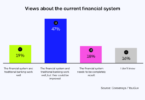Today the Australian Treasury published a consultation on regulating digital assets which is open until December 1. Its approach is to target intermediaries, particularly those holding assets in custody, rather than the digital assets themselves. The paper highlights the significant consumer risk where intermediaries custody or control assets, with FTX as an example. Hence intermediaries that control assets are a key target.
Digital assets are divided into financial digital assets – securities, bonds and the like and non financial digital assets. For financial digital assets, it adopts the “same risk, same rules” approach and all the usual intermediaries are expected to have an Australian Financial Services License (AFSL).
Non financial digital assets
The interesting approach is for non financial digital assets. It refers to this as the ‘financialisation’ of non financial entitlements. That might include game tokens, or the tokenization of real estate, wine or tickets. In Australia, the fact of tokenizing the asset does not turn the asset into a financial asset. So games still have to comply with gaming laws, wines with their rules and so on.
However, any entity that holds digital assets on behalf of consumers potentially poses a consumer risk. So that entity needs to have an AFS license.
“If that gaming business holds significant values of tokens on behalf of customers, the asset holding arrangement would be considered a ‘digital asset facility’. The business could seek an AFSL and authorisation to issue and deal in a digital asset facility, or it could engage a platform provider as principal to perform the holding function.” And platform providers are also regulated.
Hence, a key aim is to avoid conflicting with existing specialist laws in all sorts of areas, and instead supplement them. And it doesn’t want to apply securities laws too broadly. The authors were “cognisant of the economic harms and commercial disadvantages that could arise from overextending the financial service laws to non-financia products.”
Draft legislation will be issued in 2024 and will come into effect 12 months later.
Meanwhile, today the Reserve Bank of Australia also shared its work on the economic impact of tokenization finding that it could result in annual cost savings of US$11 billion for Australians.






